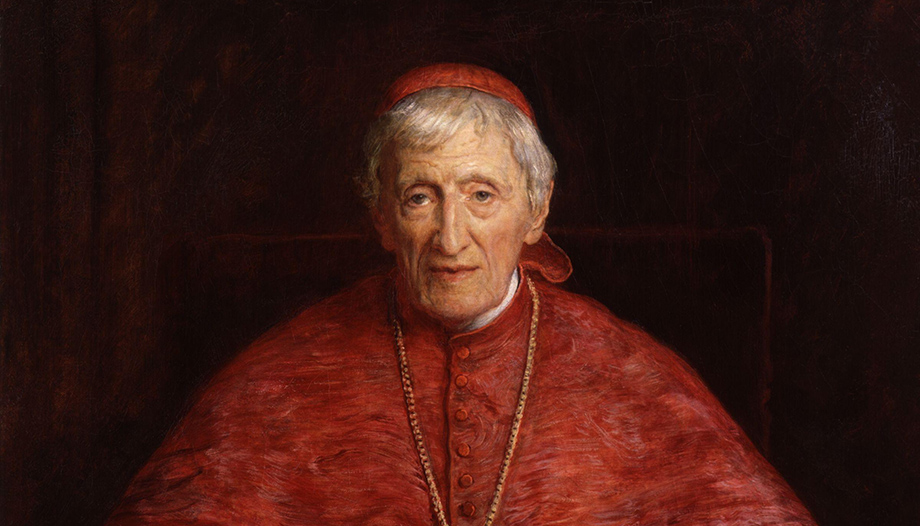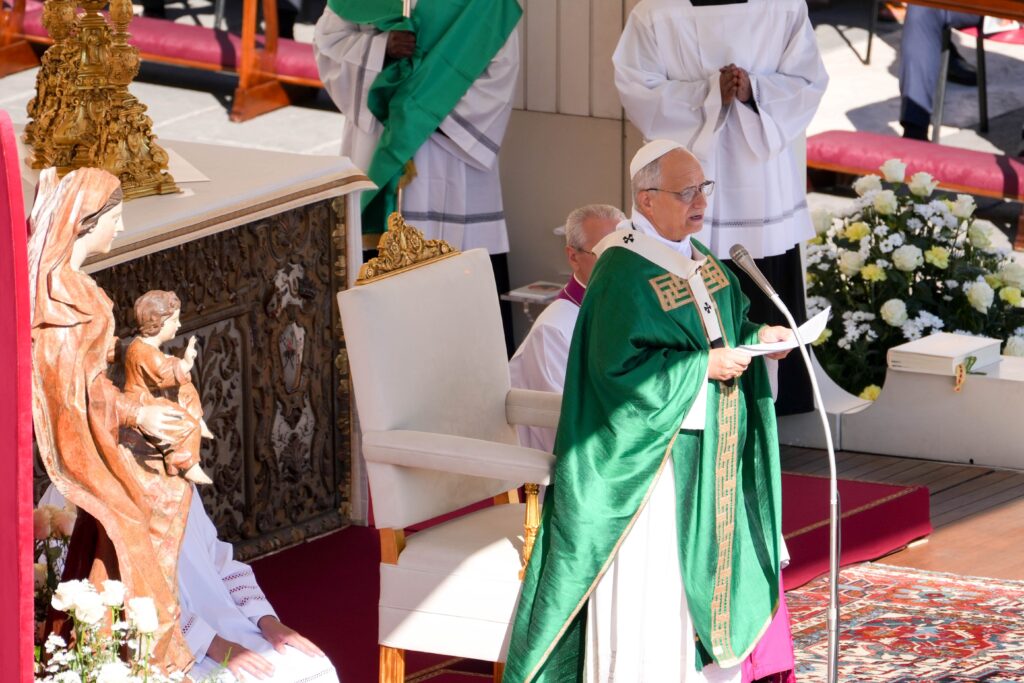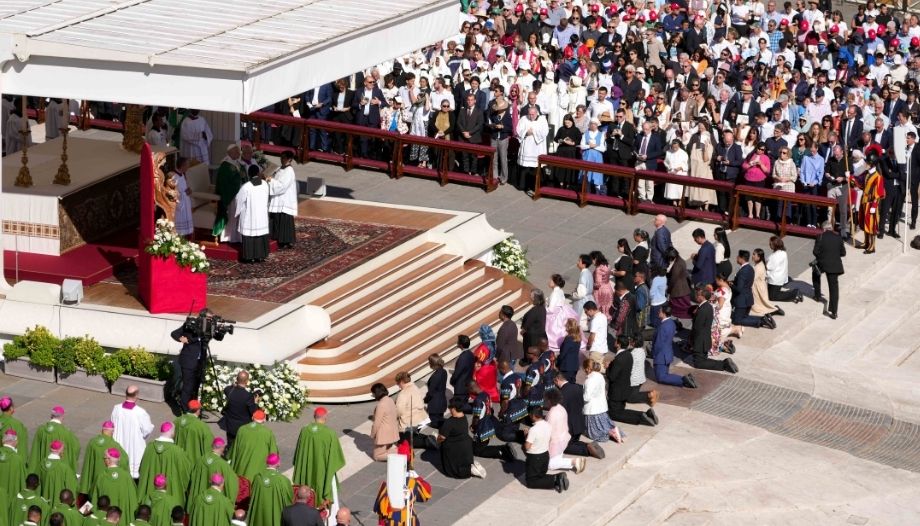- Cindy Wooden, Vatican City (CNS)
Pope Leo XIV said this Sunday in his address on the occasion of the Angeluswhich will proclaim St. John Henry Newman Doctor of the Church on November 1 on the occasion of the Jubilee of the World of Education.
The announcement took place after the September 28th Mass, at the Jubilee of Catechists. The Pope said that St. Newman "contributed decisively to the renewal of theology and to the understanding of the development of Christian doctrine."
Leo XIV confirms the opinions of cardinals and bishops
Dicastery for the Causes of Saints had announced July 31 that Pope Leo "confirmed the affirmative opinion" of the cardinals and bishops members of the dicastery on St. John Henry Newman. Theologian and cardinal of the Holy Roman Church, founder of the Oratory of St. Philip Neri in England. Now Leo XIV has set a date for his proclamation: November 1.
Numerous requests
St. John Henry Newman was born in London on February 21, 1801, was ordained an Anglican priest. He converted to Catholicism in 1845, was made a cardinal in 1879 by Pope Leo XIII, and died in Edgbaston, near Birmingham, England, in 1890.
Even before St. Newman was canonized by Pope Francis on October 13, 2019, there were petitions for him to be named one of the three dozen Doctors of the Church. Holy men and women from both the Christian East and West who are honored for particularly important contributions to theology and spirituality.
The 37 saints currently recognized as Doctors of the Church include the early Church Fathers, such as St. Jerome, St. John Chrysostom and St. Augustine. And theologians such as Saints Thomas Aquinas, St. Bonaventure and St. John of the Cross. But also St. Therese of Lisieux, who was honored by St. John Paul II in 1997, despite her lack of academic achievement.

20 bishops' conferences
The Dicastery for the Causes of Saints said that 20 bishops' conferences had requested that St. Newman be declared a doctor of the Church. Including the bishops of England and Wales, Scotland, Ireland, the United States, Canada and Australia.
"Your thinking has had a significant impact on the theology of the 20th century, especially at the Second Vatican Council," the dicastery stated. "Several popes, from Leo XIII to Francis, have drawn inspiration from him in their pontifical magisterium."
Pope Francis authorized the dicastery to begin the process for the declaration in May 2024. In September, the Dicastery for the Doctrine of the Faith affirmed that "there was no doubt about the excellence and quality of the saint's writings. And it expressed a completely positive judgment on his 'eminens doctrina' (eminent teaching)."
The dicastery's consultors unanimously supported the petition, the dicastery said, as did the cardinals and bishops who are members of the dicastery.
Closeness and prayer for typhoon victims in Asia
Also before praying the Angelus, the Pope shared with the faithful and pilgrims his proximity to AsiaThe report said that "a typhoon of exceptional strength has hit several Asian territories, in particular the Philippines, the island of Taiwan, Hong Kong City, the Guangdong region and Hainan".
"I am close to the affected populations, especially the poorest. And I pray for the victims, the missing, the many displaced families, the very many people who have suffered hardship and also for the rescue teams and the civil authorities. I invite everyone to trust in God and in solidarity. May the Lord give them strength and courage to overcome all adversities," he added.
Catechists: putting the word of life in hearts
In his homily at the Mass for the Jubilee of Catechists, Pope Leo XIV said that "when catechists teach, their aim is not simply to transmit information about the faith". But "to deposit the word of life in hearts, so that it may bear the fruits of a good life," said Pope Leo XIV.
"The Gospel announces to us that everyone's life can change because Christ is risen. This event is the truth that saves us. Therefore, it must be known and proclaimed," the Pope told some 20,000 catechists from more than 115 countries attending the Jubilee of Catechists.
But proclaiming the Good News is not enough, the Pope said in his homily at Mass on September 28 in St. Peter's Square. "It must be loved. It is love that leads us to understand the Gospel!".

39 men and women from 16 countries
During the liturgy, Pope Leo formally installed 39 women and men from 16 countries into the ministry of catechists. Among them were David Spesia, executive director of the U.S. bishops' Secretariat for Evangelization and Catechesis, and Marilyn Santos, associate director of the secretariat.
Before the Pope delivered his homily, a deacon named each of the 39, who responded in Italian: "Eccomi", or "present". After the homily, Pope Leo gave them each a crucifix.
"May your ministry always be grounded in a deep life of prayer, grounded in sound doctrine and animated by genuine apostolic zeal," the Pope told them. "As stewards of the mission entrusted to the Church by Christ, you must always be ready to give an answer to anyone who asks you for a reason for the hope that is in you."
The rich man and Lazarus
The Gospel reading at Mass was the parable of the rich man and Lazarus from Luke 16:19-31. In the parable, the Pope said, Lazarus is ignored by the rich man, "and yet God is close to him and remembers his name."
But the rich man has no name in the parable, "because he has lost himself by forgetting his neighbor," the Pope said. "He is lost in the thoughts of his heart: full of things and empty of love. His possessions do not make him a good person."
Current history: opulence and misery
"The story that Christ tells us is, unfortunately, very relevant today," Pope Leo said. "At the gates of today's opulence stands the misery of entire peoples, devastated by war and exploitation."
"Throughout the centuries, nothing seems to have changed: how many Lazaruses die before greed that forgets justice, before profits that trample on charity and before riches blind to the pain of the poor," he said.
In the parable, the rich man dies and is cast into the underworld. He asks Abraham to send a messenger to his brothers to warn them and call them to repentance.
The Gospel story and the words of Scripture that catechists are called to share are not meant to "disappoint or discourage" people, but to awaken their consciences, the Pope said.
The heart of catechesis
Echoing the words of Pope Francis, Pope Leo said that the heart of the catechesis is this announcement. That "the Lord Jesus is risen, the Lord Jesus loves you and has given his life for you; risen and alive, he is close to you and awaits you every day."
That truth, he said, should drive people to love God and love others in return.
God's love, he said, "transforms us by opening our hearts to the Word of God and to the face of our neighbor".
Parents, the first to teach their children about God
Pope Leo reminded parents that they are the first to teach their children about God, his promises and his commandments.
And he thanked all those who have been witnesses to others of faith, hope and charity, cooperating in the pastoral work of the Church by "listening to the questions, sharing the struggles and serving the desire for justice and truth that dwells in the human conscience."
Teaching the faith is a communitarian effort, he said, and the Catechism of the Catholic Church "is the 'travel guide' that protects us from individualism and discord, because it bears witness to the faith of the entire Catholic Church."







